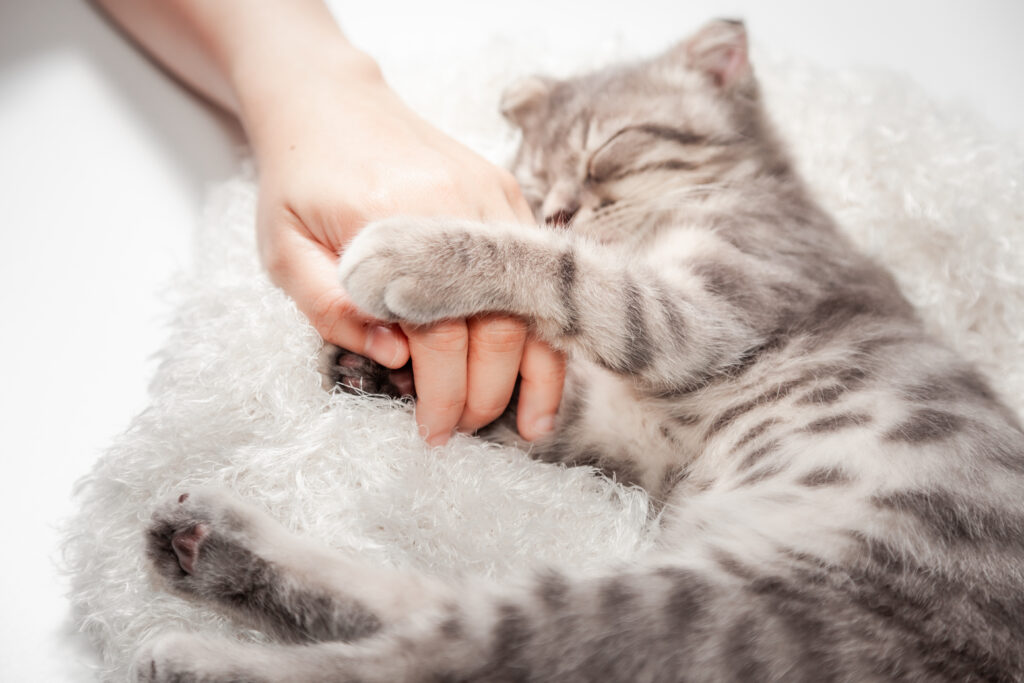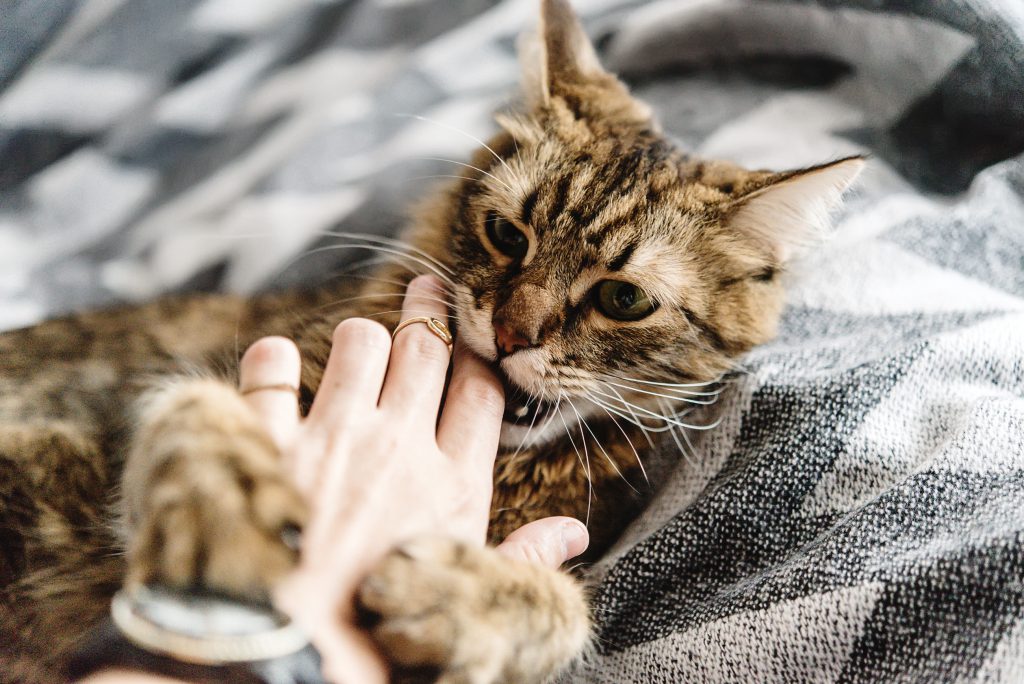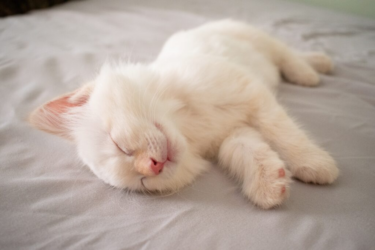
Cats sometimes bite. But why? And how do you recognise the difference between a bite out of aggression and a ‘love bite’? In this blog, we will tell you about the biting behaviour of cats. Because then you will get to know your furry friend even better.
We will soon tell you why cats bite. And how to distinguish between the different types of bite. But first we will tell you something about the way cats communicate with you, because that has everything to do with biting behaviour.
How do cats communicate?
Cats are mysterious creatures. Hundreds of books have been written about their behaviour and it is still difficult to understand them. Cats cannot talk, of course, so you cannot ask them anything. Yet cats communicate quite clearly – namely with their bodies. Do you want to get to know you cat better? Then you have to watch their body language. Because that is how cats communicate all day long – with you and with their companions. The position of their tails and ears and the size of their pupils, for example, are good indicators of how a cat is feeling and what it wants to say. Cats communicate with their whole body. Even with their fur.
Want to know more about communicating with cats? Then read the mini course in cat language!
Cats are sensitive to stimuli
Sensation and touch are incredibly well developed in cats – their fur and skin are the most important receptors of stimuli. Their whiskers, for example, are real organs of touch and enable them to judge distance and locate their prey. And have you ever seen those cute little tufts of hair on your cat’s ears and above its eyes? They also help your cat to estimate distance.
A cat’s entire fur is sensitive and thus a very important sense for cats. If touched too much or too long, it can become over-stimulated. This is not a pleasant feeling for cats and they may react by biting. But that is not the only reason why cats bite.
Why do cats bite?
We love our cats. And therefore we often cuddle and pet them. There is nothing wrong with that of course, as long as your cat likes it too. But remember – as we told you before – that a cat’s fur is sensitive to every kind of touch. If you stroke your cat for a long time, it might get overexcited and tell you to stop.
Does your cat bite you when you stroke or cuddle it? Then you have probably overlooked signals. This is because cats do not usually bite out of the blue – they first indicate with their body language that they do not like it. Therefore, always pay attention to the following signals:
- Your cat stops purring
- Your cat looks at your stroke hand
- Your cat’s tail starts to wag
- Your cat tries to walk away
- Your cat’s ears go backwards
- Your cat growls or barks
Does your cat show any of these signs? Then your cat is over-stimulated and doesn’t like being stroked or cuddled. Simply withdraw your hand and leave your cat alone.
Biting in pain
Cats can also be in pain somewhere. They may have hit themselves or pulled something while playing or hunting. But a cat can also suffer internally after an accident, a fight or if it is ill.
If your cat bites you straight away – or makes a biting movement towards your hand – the moment you touch him at a certain spot, then your cat is most likely in pain. And that is never a good sign! Take your cat to the vet right away and have it examined thoroughly.
Biting out of love: the Love Bite
Cats let you know they love you in many different ways. They give you – hard or soft – kisses, snuggle up to you or give you a thorough cleaning. But some cats can also give love bites. Does your cat bite you softly when you stroke him? Or does it gently nibble your hand or fingers? Then your cat is showing you that he loves you very much.

Biting during play
When kittens play with each other or with their mother, they can sometimes bite. If they do this too hard, mother will react immediately. Because that is not allowed. But also their brothers and sisters will tell them when they bite too hard. And so young cats quickly discover that they should not bite too hard.
Don’t want your cat to bite you? Then don’t let your cat play with your hands, use a cat toy – a fishing rod with a feather attached, balls and toy mice are perfect. Does your cat bite your hand a little too hard out of enthusiasm? Then gently withdraw your hand, say ‘no’ in a low voice and walk away. This is the quickest way for your cat to learn that it is not OK to bite you.
Disclaimer: Petrebels does not consist of veterinarians or behavioral experts: all content, information and tips on this blog are intended to inspire and inform you. Does your cat have complaints or problems and do you have doubts about your cat’s health? Then always go to the vet or a behavioral expert.



